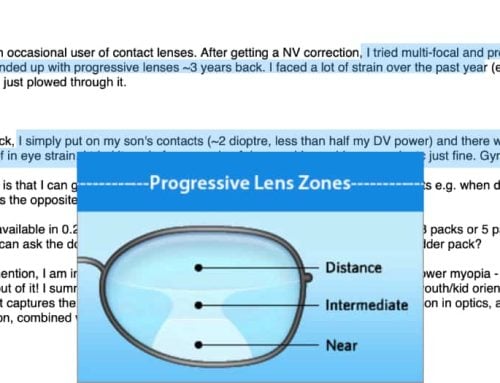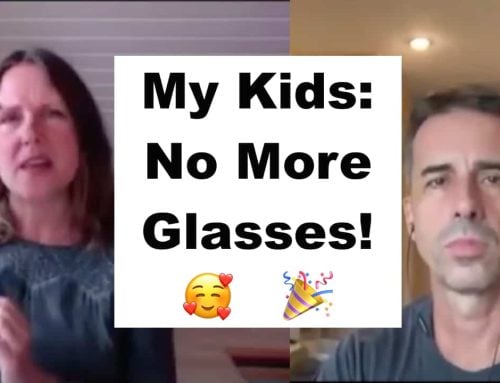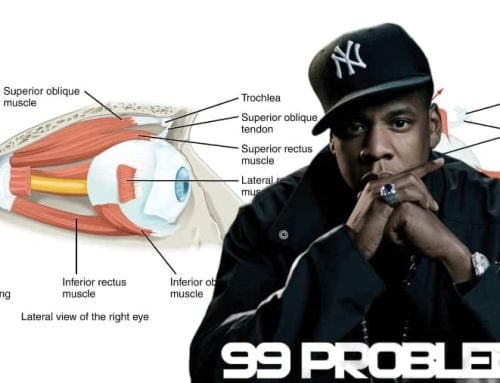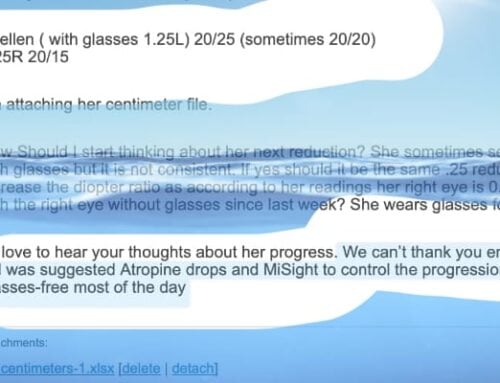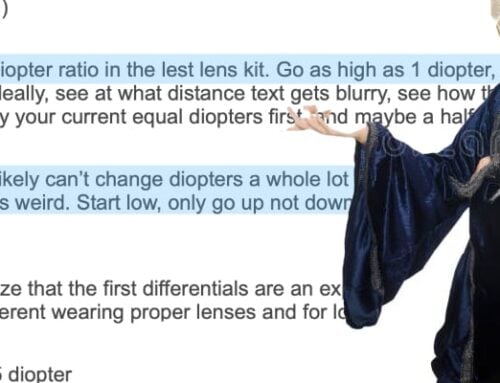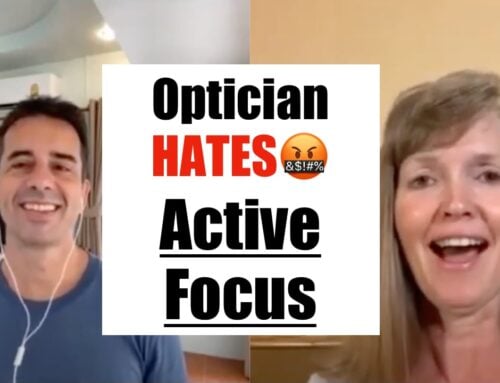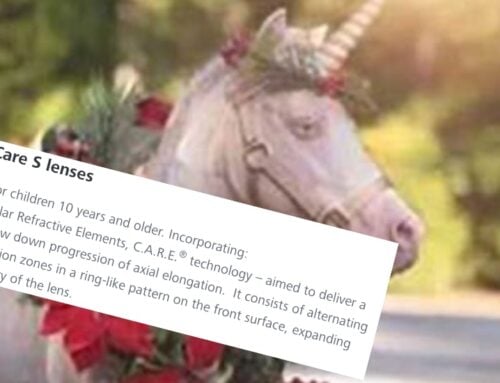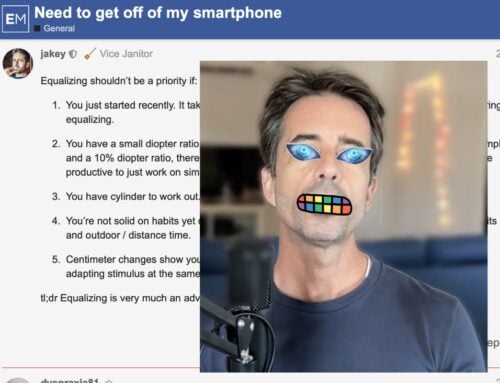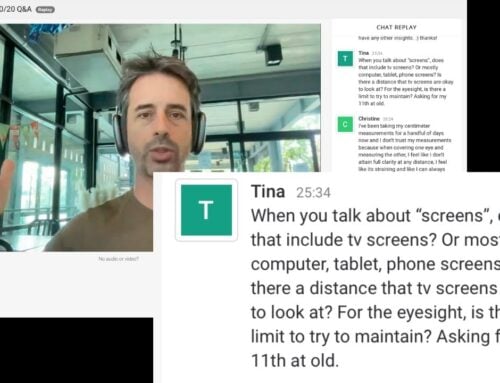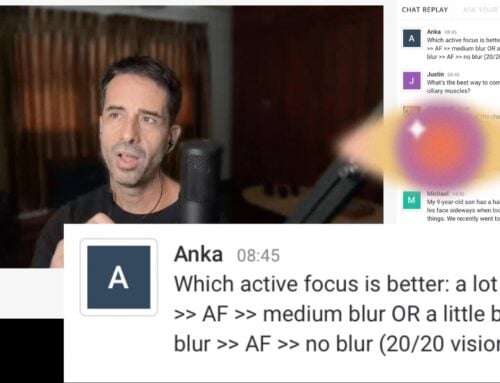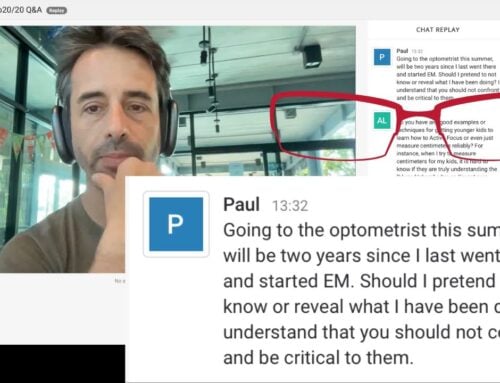Pinhole glasses. Why do I suddenly see more clearly if I wear them? What does that mean for my long term eyesight? Should I keep using them or are they just more Internet unicorn poop droppings?
Variations of this question arrive on the doorstep of endmyopia frequently, lots of people apparently want to know if pinhole glasses can really improve your eyesight.
Well … do pinhole glasses improve eyesight?
Let’s dive right in, let’s understand the optical properties possibly magical glasses, and how they affect your eyesight:
How Pinhole Glasses Work
To answer the question whether pinhole glasses can improve your eyesight, you first must understand how they work. Since if you don’t understand the optical principles of the pinhole magic, then you’ll easily be pooped on by this Internet unicorn.
From Wikipedia’s Pinhole Glasses entry:
Pinhole glasses, also known as stenopeic glasses, are eyeglasses with a series of pinhole-sized perforations filling an opaque sheet of plastic in place of each lens. Similar to the workings of a pinhole camera, each perforation allows only a very narrow beam of light to enter the eye which reduces the size of the circle of confusionon the retina and increases depth of field. In eyes with refractive error, the result is often a sharper image.
Simple optical concept once you understand it.
Here’s a visual of the core premise of depth of field, the circle of confusion, and the underlying effect of pinhole glasses:
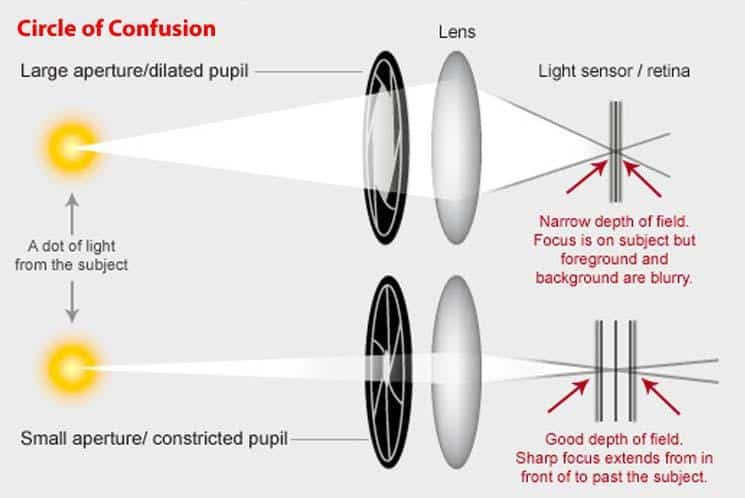
Don’t pass out. Look at it till it makes sense.
Tiny dots, bigger depth of field, clearer image. Pinhole mystery solved.
Make sense?
Also: Pinhole glasses change optical properties – only while they are in place.
Once you take off the tiny dots of glasses, their effect is gone. Without a lasting trace.
And while you’re here and since there is more to this story, let’s quickly expand on this latter claim – exploring exactly why pinhole glasses won’t affect your vision once you take them off.
Here’s strike one against the magical pinhole glasses:
Pinhole Glasses Don’t Reduce Eye Strain
Why does your distance vision suck to begin with?
Because you haven’t been wearing your pinhole glasses? No, of course not. Your distance vision starts to be poor because of a ciliary (focusing muscle) spasm. Referred to as pseudomyopia in most clinical science, this is what happens every day when you stare at a screen for hours on end.
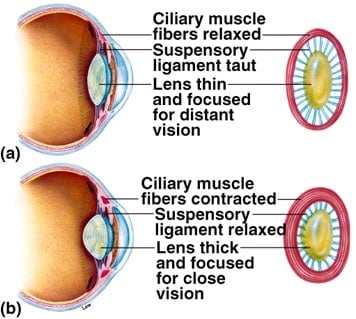
No unicorn poop here.
The best way to fix an issue effectively, is to address its cause.
Pinhole glasses don’t change the cause of pseudomyopia, the focusing muscle spasm. Or they can, if you wear pinhole glasses and go outside – instead of staring at a screen. But that’s confusing causality (you stopped staring at a screen, that’s what helped your vision – not the pinhole business), which you now know not to do.
But wait, there’s more.
Pinhole Glasses Don’t Reverse Progressive Myopia
Here we’re going a little deeper.
Those who sell you pinhole glasses to improve your eyesight, don’t understand (or don’t want you to understand) the actual cause of progressive myopia – which is stimulus created by the ever increasing minus lens “prescriptions” you wear.
We’re going deeper here, because even mainstream lens-sellers won’t tell you about this (even though optometry science totally admits it).
Progressive myopia is very closely tied to hyperopic defocus, and the stimulus that defocus creates telling your eyeball to elongate. And that elongation is exactly what science talks about, when they talk about lens-induced, progressive myopia.
A quick visual:
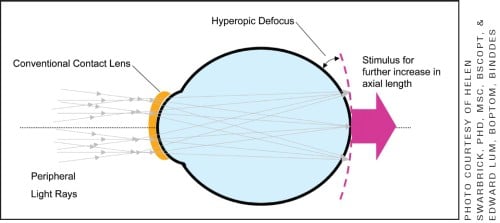
Hyperopic defocus from minus lens, axial elongation = progressive myopia
Remember, causality?
Minus lenses cause progressive, lens-induced myopia, and pinhole glasses have exactly zero bearing on that whole interaction. Sure you can wear pinhole glasses, you can affect the circle of confusion (which could have so many meanings here!), increases depth of field, etc etc, as discussed above. But does that change anything about your minus lens wear?
Obviously not. And while the seeming magic of suddenly better vision with pinhole glasses may leave you curious, once you realize the cause of that experience, you should question their effectiveness in helping to improve your eyesight.
That’s a lot of science talk, you say (even though we’re barely scratching the surface here).
But that’s the thing about various Internet droppings of unicorn poop. You’ll always fall for it if you are looking for an easier answer, for less personal accountability, if you’re unwilling to do the less-fun thing of reading a bit of science and biology and other tediously dry topics.
So, what did we learn?
Conclusion: Unicorn Poop is Unicorn Poop
Understand the cause, ask if the product / treatment / idea is addressing said cause.
In the case of myopia, reducing myopia, improving your eyesight, your problem is all those hours playing video games and looking at highly questionable Internet porn. Your solution is to do less of all that, and not the colorful and tempting unicorn poop that is the whole premise of pinhole glasses.
If it seems so easy, and it’s online, you know what it probably is …
 Must be real!
Must be real!
Did this cover it, the whole pinhole question?
Hopefully. There’s also a video version of the Q&A of this topic on the Youtubes, full of sage beards and entirely no helpful graphics and visuals. So if you prefer listening to, or watching this kind of explainer rather than reading, then here’s that:
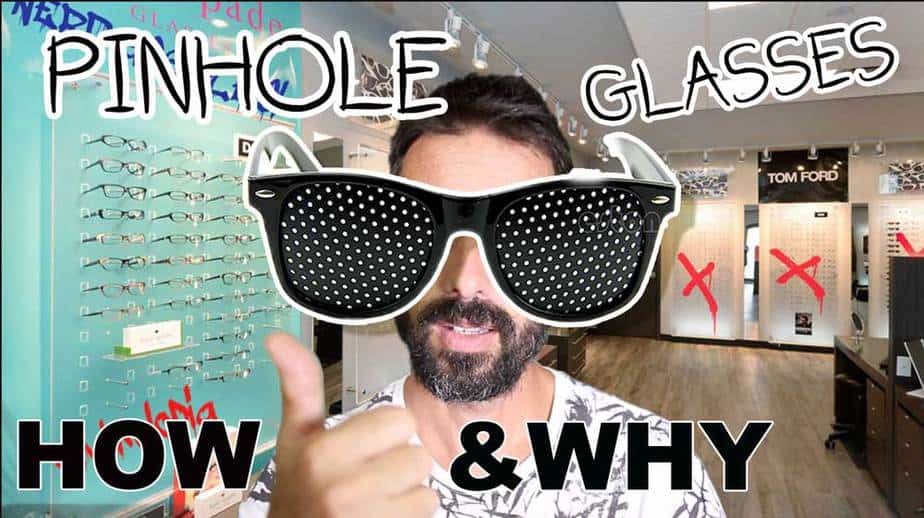 Pinhole Glasses Video Explainer
Pinhole Glasses Video Explainer
That’s it. Disagree? Love pinhole glasses?
Feel free to leave comments on the Tubes video, or yell at me in our Facebook group, or send awesome e-mails. ;)
Cheers,
-Jake

